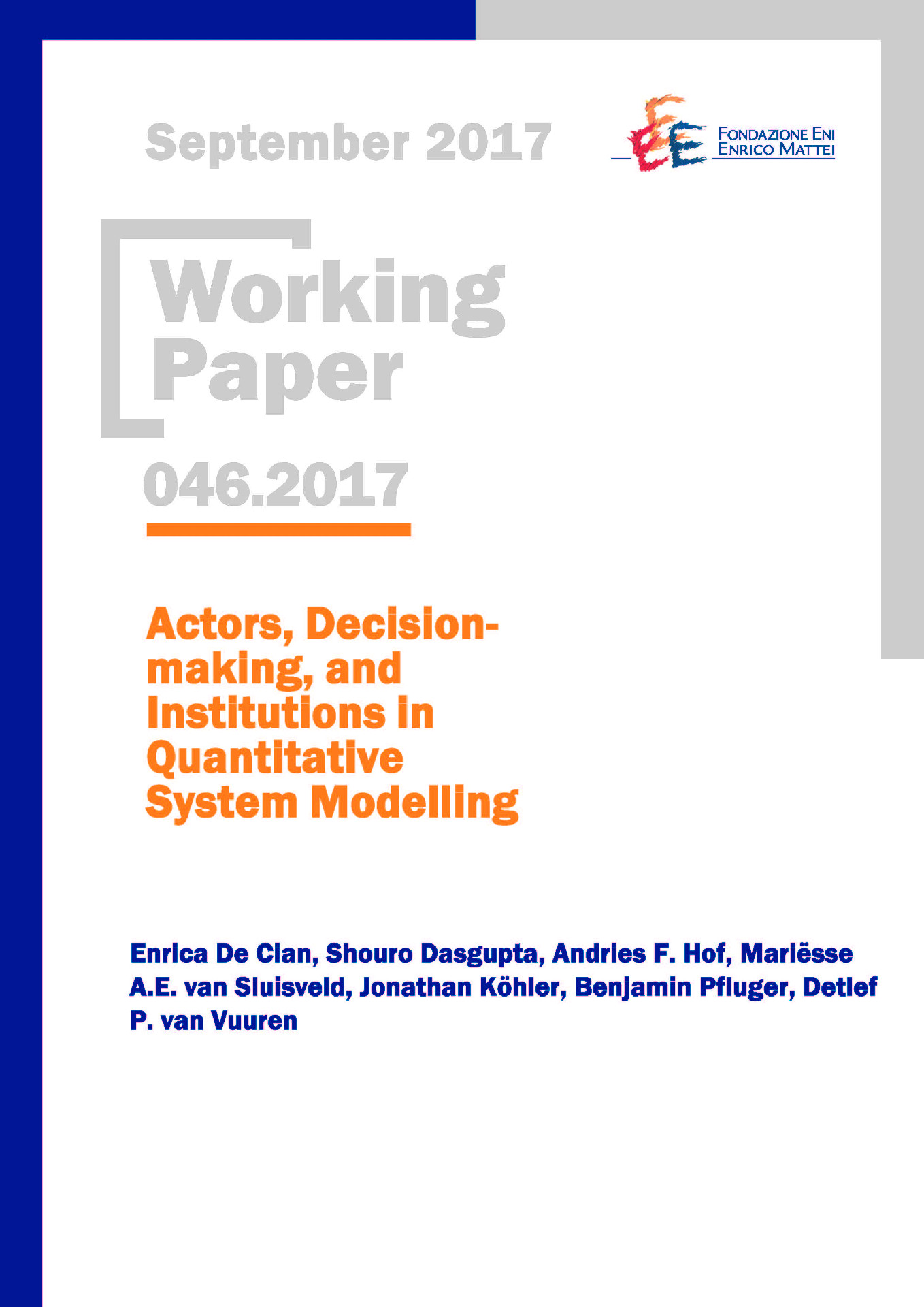Actors, Decision-making, and Institutions in Quantitative System Modelling

07.09.2017
Enrica De Cian (Fondazione Eni Enrico Mattei, CMCC); Shouro Dasgupta (Fondazione Eni Enrico Mattei, CMCC); Andries F. Hof ( PBL Netherlands Environmental Assessment Agency, Utrecht University); Mariësse A.E. van Sluisveld (PBL Netherlands Environmental Assessment Agency, Utrecht University); Jonathan Köhler (ISI Fraunhofer Institute); Benjamin Pfluger (ISI Fraunhofer Institute); Detlef P. van Vuuren (PBL Netherlands Environmental Assessment Agency, Utrecht University)
C63, O10, P16, Q00, Q4, Q5
Modelling, Transition Pathways, Scenarios, Institutions, Governance
Mitigation, Innovation and Transformation Pathways
Massimo Tavoni
Increasing the realism with respect to the representation of actors, decision-making, and institutions is critical to better understand the transition towards a low-carbon sustainable society since actors, decision-making, and institutions are the defining elements of transition pathways. In this paper, we explore how this can be done by conducting a model-based scenario analysis. The increasing focus on implementation and transition dynamics towards long-term objectives requires a better comprehension of what drives change and how those changes can be accelerated. We explore opportunities that arise from a deeper engagement of quantitative systems modeling with socio-technical transitions studies, initiative-based learning, and applied economics. We argue that a number of opportunities for enriching the realism in model-based scenario analysis can arise through model refinements oriented towards a more detailed approach in terms of actor heterogeneity, as well as through integration across different analytical and disciplinary approaches.
***
Suggested citation: De Cian, E., S. Dasgupta, A. F. Hof, M. A. E. van Sluisveld, J. Köhler, B. Pfluger, D. P. van Vuuren, (2017), ‘Actors, Decision-making, and Institutions in Quantitative System Modelling’, Nota di Lavoro 46.2017, Milano, Italy: Fondazione Eni Enrico Mattei
